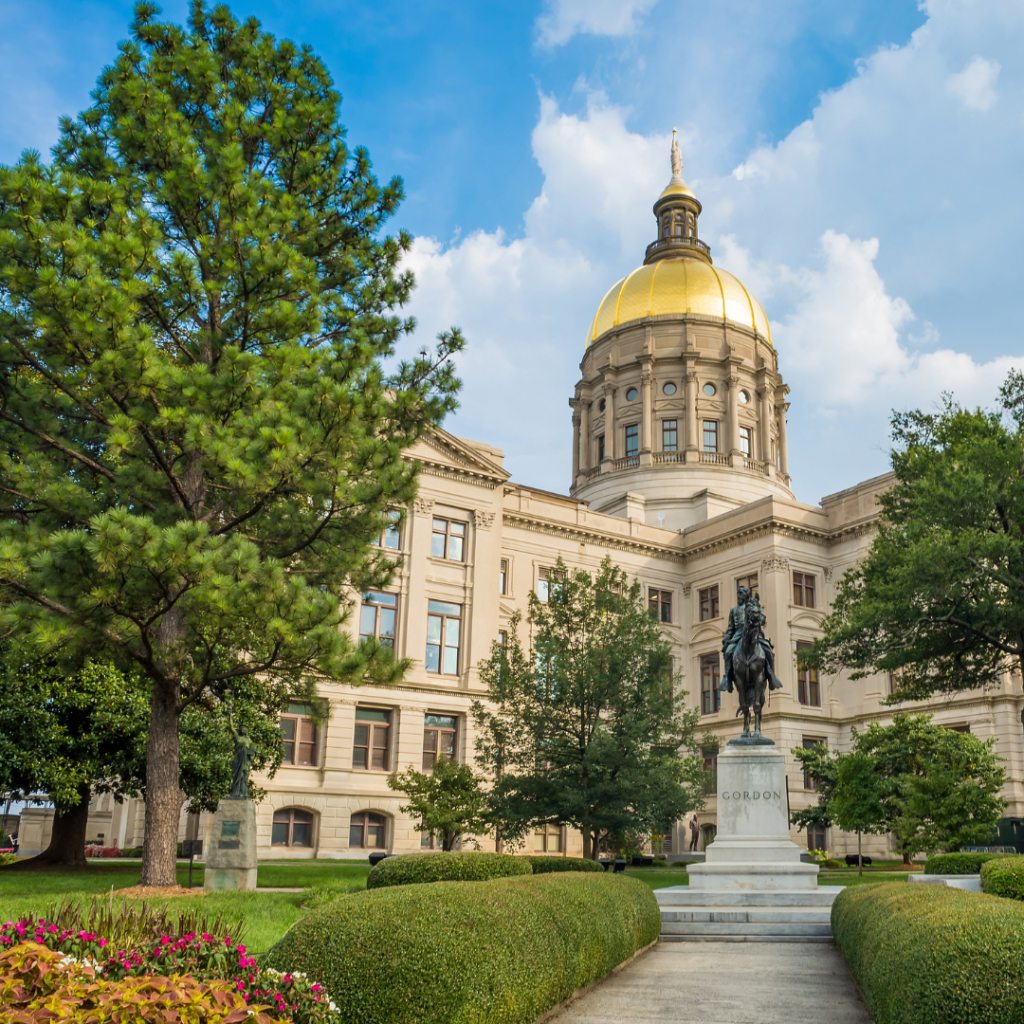Georgia on the Edge
We may be the best state to do business, but we are a difficult state to live in.
Despite being the eighth most populous state in the country, Georgia has one of the shortest legislative sessions at just 40 legislative days. While a “legislative day” is only counted when the House and Senate convene, our legislators are asked to do a tremendous amount of work in a criminally short period of time.
 As a result, our elected officials rarely accomplish everything they set out to, which is why controversial legislation like legalizing sports betting remains hotly contested more than a decade after it was proposed. It also means they must prioritize certain bills so that the legislation can get the proper attention it deserves.
As a result, our elected officials rarely accomplish everything they set out to, which is why controversial legislation like legalizing sports betting remains hotly contested more than a decade after it was proposed. It also means they must prioritize certain bills so that the legislation can get the proper attention it deserves.
This year, the most significant legal overhaul came in the form of civil litigation rules, also known as tort reform. Gov. Brian Kemp flexed more of his political muscle than legislators had seen throughout his tenure to pass SB 68 and SB 69, threatening consequences and primary challenges to any Republicans who opposed him. The bill came with strong support from Georgia’s small business and medical communities, who stand to gain the most by relaxing their insurance requirements.
However, it was opposed by a number of others, from trial lawyers to average Georgia residents to sex trafficking survivors. Kemp and the legislation’s backers say it will bring insurance rates down for both residents and businesses, though similar promises in other states have yet to bear fruit. Perhaps Georgia will be the first.
 Another significant piece of legislation – the only one that our state’s constitution requires the legislature to pass every year – is the budget. Georgia is set to spend nearly $38 billion in the next year, a significant portion of which will go to K-12 education (38%), healthcare (20%) and higher education (10%). However, digging into the details for the remainder of the budget offers a clear picture of the legislature’s priorities, including:
Another significant piece of legislation – the only one that our state’s constitution requires the legislature to pass every year – is the budget. Georgia is set to spend nearly $38 billion in the next year, a significant portion of which will go to K-12 education (38%), healthcare (20%) and higher education (10%). However, digging into the details for the remainder of the budget offers a clear picture of the legislature’s priorities, including:
- $715 million via cash for capital projects
- $250 million in additional funding for the Georgia Department of Corrections
- $141 million to fully fund the Promise Scholarship Program, a voucher program that provides $6,500 vouchers to students in the lowest performing schools to go toward private school tuition
- $109 million in state grants to help local school systems pay for safety improvements on their campuses
- $15.3 million to provide extra money to schools that educate large numbers of poor students.
Perhaps the starkest takeaway from those figures is that legislators chose to spend almost 10 times more to subsidize private school tuition as they did to support and improve public schools that serve poor students. Georgia is one of just five states that traditionally hasn’t spent extra money directly on poor students, even though about 411,000 children are living in poverty in this state.
Lawmakers have taken some very small steps to assist those families over the years, including passing a bill this session that will cut state income taxes for parents by up to $250 for each child they have who is younger than 6. It will also increase how much parents can get back from Georgia’s existing childcare tax credit by $600.
While these are welcome and long overdue changes, they are a drop in the bucket compared to the scale of the problem. At our core, we may be the best state to do business, but we are a difficult state to live in, ranking 43rd in the nation for health and safety and 31st in education according to the KIDS COUNT Data Book released by the Annie E. Casey Foundation in 2024. Georgia was also ranked 46th in affordability by Wallet Hub, which looked at factors like paid family leave, average family health insurance premiums and both mortgage and non-mortgage debt.
The legislature has the power to tackle all those problems. We could raise the minimum wage, which has sat at $5.15 an hour since 2001. We could expand Medicaid, which would bring in billions of dollars of new federal funding and give health insurance to up to half a million uninsured Georgians. We could direct more money to struggling public schools so that a child’s educational quality isn’t determined by their home’s property value.
Every year, we have the opportunity to rebuild our state from the bottom up, and every year, we squander it. We are living in the most economically uncertain times in modern history, leaving millions of families living on the edge.
As we look ahead to the 2026 legislative session, I can only hope that our leaders will pull us back from the brink.
Tharon Johnson can be seen Sunday mornings on The Georgia Gang on Fox 5 Atlanta. He received a Green Eyeshade award in journalism in 2023.






